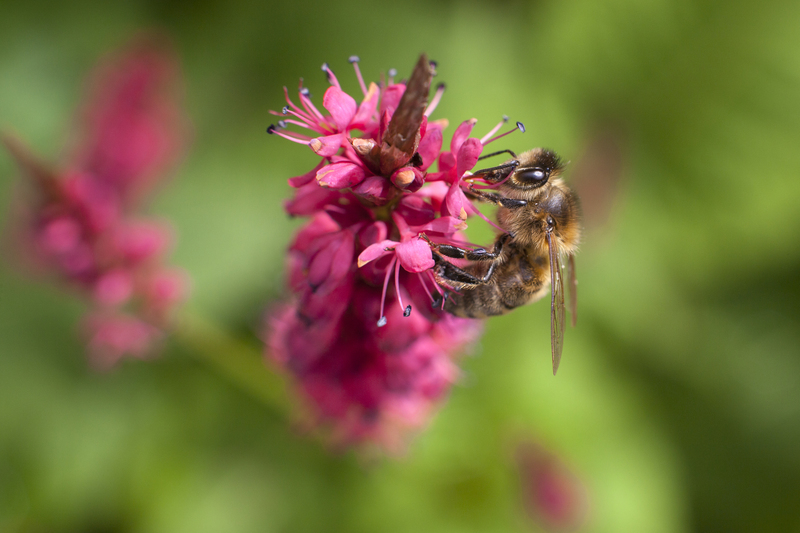Beginner Gardener's Handbook: 9 Tips to Thrive
Posted on 28/05/2025
Beginner Gardener's Handbook: 9 Tips to Thrive
Welcome to your green-thumb journey! Starting a garden can feel intimidating, but with the right guidance, anyone can cultivate a thriving green space. This Beginner Gardener's Handbook is packed with practical advice and nine proven tips that will help new gardeners succeed. Whether you want to grow vibrant flowers, fresh vegetables, or luscious herbs, this comprehensive guide makes it easy to unlock your inner gardener.
Why Gardening is a Rewarding Hobby
Gardening is more than just planting seeds and watching them grow--it's a holistic activity that nurtures your mind, body, and the environment. From reducing stress and promoting physical activity to encouraging healthy eating, the benefits of gardening are abundant. With these beginner gardening tips, you'll discover just how accessible and enjoyable growing your own plants can be.

9 Essential Tips from the Beginner Gardener's Handbook
Ready to dig in? Here are the nine must-know gardening tips to ensure success in your budding backyard or balcony oasis.
1. Start Small and Simple
- One of the most common mistakes for first-time gardeners is biting off more than they can chew. Choose a manageable gardening space--like a few pots, a small raised bed, or a section of your yard. Start with a handful of easy-to-care-for plants and gradually expand as you gain confidence.
- Consider planting some herbs, salad greens, or marigolds to begin. These are forgiving and deliver quick rewards.
2. Understand Your Growing Zone and Climate
- Gardening success begins with matching plant choices to your local climate. Find your USDA Plant Hardiness Zone (or equivalent for your country) and research which plants naturally thrive there.
- Pay attention to your garden's microclimates--shaded corners, sunny spots, or sheltered areas can all impact plant growth.
3. Choose the Right Soil and Amend as Needed
- Healthy soil means healthy plants. Invest in quality soil or enrich existing ground with compost and organic matter.
- Test your garden soil to understand its pH and nutrient levels. Most vegetables prefer slightly acidic to neutral soils (pH 6.0-7.0).
- For container gardening, use a high-quality potting mix designed for your plant type.
4. Water Wisely
- Plants need the right balance of moisture--too much or too little water can harm roots.
- Check soil moisture with your finger: If the top inch feels dry, it's time to water.
- Water early in the morning to reduce evaporation and prevent fungal diseases.
- Consider mulching around plants to lock in moisture and keep weeds at bay.
5. Select Plants for Beginners
-
Some plants are naturally easier for new gardeners to grow. Begin with "foolproof" varieties:
- Leafy greens (lettuce, kale, spinach)
- Tomatoes and cherry tomatoes
- Herbs such as basil, mint, and chives
- Marigolds, nasturtiums, or sunflowers for colorful blooms
- Radishes or green beans for quick harvests
Choose plants that suit your light conditions (full sun, partial shade, etc.) for best results.
6. Feed Your Plants Properly
- Like all living things, plants require nutrients to thrive. Use slow-release organic fertilizers or compost to provide balanced nutrition.
- Follow package instructions--over-fertilizing can burn delicate roots.
- Observe your plants for signs of deficiency (yellowing leaves, slow growth) and adjust feeding as necessary.
7. Control Pests and Diseases Naturally
- Prevention is key. Healthy, well-cared-for plants are less likely to be troubled by pests or diseases.
- Encourage beneficial insects like ladybugs, lacewings, and bees; these natural allies help keep harmful pests in check.
- Check the undersides of leaves for problems and remove affected foliage promptly.
- Try natural remedies--such as neem oil or insecticidal soap--for infestations before turning to harsh chemicals.
8. Practice Patience & Consistency
- Gardening is a journey, not a race. Plants grow in their own time. Avoid the temptation to fuss excessively or over-manage your garden.
- Consistent care--watering, weeding, and regular observation--is more effective than sporadic bursts of attention.
- Remember: Even experienced gardeners encounter setbacks. Learn from each season and improve next time.
9. Keep a Gardening Journal
- Documenting your garden's progress is one of the most effective ways to grow as a gardener.
- Record planting dates, varieties, weather patterns, successes, and challenges.
- Referencing your notes helps you make informed decisions season after season.
Common Beginner Gardening Questions
-
How often should I water my garden?
Most plants prefer deep, infrequent watering over shallow, daily watering. Check moisture an inch below the surface and adjust accordingly. -
Which gardening tools do I need to start?
Beginners should invest in:- Hand trowel
- Pruning shears
- Garden gloves
- Watering can or hose
- Sturdy spade
-
Is organic gardening better for beginners?
Organic methods are safe, sustainable, and often easier for novices--no need for complicated synthetic chemicals.
Must-Have Gardening Tools: A Quick List
- Hand Trowel: For digging, planting, and transplanting seedlings.
- Garden Gloves: To protect your hands from thorns and dirt.
- Watering Can/Soaker Hose: For easily controlling how much water your plants receive.
- Pruners or Shears: Keep plants neat and healthy by removing dead leaves or stems.
- Rake: Gather debris and prepare soil for planting.
Gardening Mistakes to Avoid as a Beginner
- Overwatering or underwatering--both can be fatal to plants. Always check soil moisture first.
- Neglecting to research each plant's requirements (sunlight, watering, fertilizer needs).
- Poor soil preparation. Invest time upfront to improve soil and you'll see bigger results.
- Skipping pest checks or ignoring early signs of disease.
- Trying to grow too many different plants at once--stick with a manageable selection.
Seasonal Tips for New Gardeners
- Spring: Embrace cool-season crops like lettuce and radishes. Prepare beds before the last frost.
- Summer: Water deeply, mulch beds, and harvest regularly. Keep an eye on pests.
- Autumn: Plant hardy greens, collect seeds, and prepare compost piles for winter.
- Winter: Plan next year's plantings, prune dormant shrubs, and repair tools.

Benefits of Gardening for Beginners
- Mental Well-being: Gardening reduces stress, encourages mindfulness, and boosts confidence through accomplishment.
- Physical Health: Light exercise, fresh air, and homegrown produce contribute to wellness.
- Connection to Nature: Even a small balcony garden brings you closer to the rhythms of the seasons.
- Sustainability: Growing your own food reduces your carbon footprint and reliance on supermarkets.
Conclusion: Thrive as a Beginner Gardener
Gardening is a deeply fulfilling pursuit that anyone can enjoy. By embracing these Beginner Gardener's Handbook tips, you'll set yourself up for a flourishing garden and a love for nurturing life. Remember, every expert was once a beginner--be patient, stay curious, and celebrate each milestone. Whether you're harvesting your first tomato or watching your first flowers bloom, the rewards of gardening await.
Ready to Grow?
Armed with this comprehensive beginner gardener's guide, you're well-equipped to kickstart your gardening adventure. Share your questions, success stories, and favorite beginner gardening tips in the comments below--let's grow together!
Latest Posts
Gardener's Guide: 3 Tips to Effectively Control Weeds
Create a Garden Oasis Full of Fun and Safety for Kids
Creating a Cozy Winter Environment for Plants

